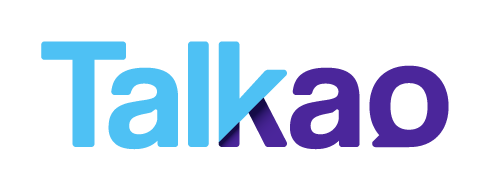
Are you worried about your professional future? Do you feel like you’re not earning what you want—or what you deserve? Today, we’ll talk about a powerful way to boost your career and significantly improve your income. No, it’s not a magic wand or the winning formula for the lottery. It’s something much simpler—and infinitely more valuable: language learning.
More specifically, we’ll explore 5 languages that can transform your professional future.
Yes, these are 5 key languages in today’s industrial, commercial, and global business landscape. Of course, this doesn’t mean that the languages on this list are the “most important” in cultural or human terms. Nor are we ranking them by prestige or global influence. Simply put, these are the languages that employers and businesses demand the most right now.
In short, they are languages that unlock job opportunities and help you build a more prosperous and global career.
But before we dive into which languages they are, let’s take a moment to understand why languages are so essential in today’s world.
And let’s also explore how AI-powered predictive translation technologies can help you create your own digital personal interpreter, making the learning process smarter and more effective.
Can learning languages really improve my professional future?
In today’s highly competitive job market, it’s essential to stand out from the crowd. Speaking a foreign language is no longer just a nice addition to your résumé—it’s a key skill. In fact, in today’s global economy, languages have become an essential asset that opens doors to new opportunities and a clearer, brighter professional future.
Mastering one or more languages gives you a strong advantage in an increasingly competitive workforce. And it’s important to remember that employability is no longer limited to your region—it’s global. Whether you’re just starting your career or have years of experience, learning new languages is one of the smartest ways to improve your professional situation.
Without a doubt, this could be a turning point in your career, opening up paths you never thought possible.

Want to improve your employability? Open new professional doors through languages
Few would deny that we live in an increasingly interconnected world. This global dynamic directly impacts business and professional growth. Today, companies actively seek candidates who can thrive in international environments. That means, if you speak a language other than your native tongue, you instantly become a more versatile candidate.
Why?
Because you’ll be able to communicate with suppliers, clients, and teams from other countries. For an employer, versatility is a highly valuable asset. Multilingual professionals enhance a company’s ability to communicate across diverse markets, making the organization more adaptable and globally competitive.
In the long run, companies will always prefer candidates who offer a broader skill set and greater return on investment. Because—whether you see it directly or not—every employee represents an investment, both short and long-term. And in the business world, it’s all about ROI, not sentiment.
But…
Are only international companies looking for language skills?
The answer is simple: there are no companies isolated from globalization anymore.
Even the smallest local businesses are, directly or indirectly, connected to the global market. So improving your professional future is all about standing out from the crowd. It’s about your ability to differentiate yourself from other candidates.
This means that the demand for language skills isn’t limited to multinational corporations—it applies to the entire economic fabric of your region.
Even within strictly local markets, many companies rely on international partnerships. Therefore, they need employees who speak other languages as a basic competency.
In fact, we can confidently say that there are virtually no isolated markets today. Most industries depend on the outside world to survive and grow.
What about AI translation? Can’t technology replace human language skills?
You might think that predictive translation technologies and AI tools can eliminate the need for human language skills. And while it’s true that today you can carry a digital translator in your pocket, human value remains irreplaceable.
As a result, languages have become one of the first hiring filters in recruitment processes. Here’s why.
Language skills help you overcome the first hiring hurdles
Imagine you’re applying for a job in a small local business. You might think languages aren’t important and that no one will care how many you speak. That mindset will almost certainly land you the classic rejection:
“Don’t call us, we’ll call you.”
In other words, you’ll find professional doors closing right in front of you.
Why? Because companies—whether local or global—look for employees who bring greater value and versatility.
Put simply: if you want to boost your employability and open new professional doors, languages are no longer a luxury. They are now as essential as computer skills or telecommunications knowledge.
So don’t fall into the trap of thinking that your sector or the job you’re aiming for won’t benefit from your language skills. Regardless of the role, speaking additional languages will help you get past the first interview stage.
But your professional future isn’t just about landing a job, right? It’s also about improving your current and future income.
And here, mastering multiple languages plays a key role.
Let’s explore how.
Higher salaries: Your language skills translate into economic value
Multiple studies show that professionals who speak a second language significantly increase their income. In fact, the difference can range from 10% to 30% higher earnings. An employee, regardless of their position, can earn up to a third more than their monolingual colleagues. And depending on the industry and the level of language proficiency, the salary difference can even double or triple.
Take English, for example. This language is almost mandatory in sectors like technology and finance. If you work in tourism, speaking English is practically a non-negotiable requirement. The same applies to German, Spanish, Chinese, or French in other industries.
As your career progresses, the language expectations tend to rise. With a basic or intermediate language level, you might be able to perform in operational roles or positions with low decision-making power. But as your responsibilities increase, so do the language requirements.
So, if your goal is to climb the corporate ladder, you’ll need to master a specific language. And most likely, you’ll need to learn a third or even fourth language. Needless to say, as you move up the ranks, your monthly paycheck will grow accordingly. And with a higher salary comes greater professional stability.
“I don’t want to be an employee; I want to be an entrepreneur”
If you choose the path of entrepreneurship, languages will be just as essential—if not more so. For an entrepreneur, the ability to communicate is key to professional success. And here, having a personal digital interpreter or the latest predictive AI translation technology isn’t enough. You’ll need to think, act, and create ideas in multiple languages.
Speaking languages enables you to expand your client portfolio, offering services internationally. It also opens doors to more profitable projects outside your local market. Another professional advantage as a freelancer or entrepreneur is building strong relationships with international suppliers. Plus, you’ll be able to import technology and services that will give you a competitive edge in your local industry.
Freelancers and entrepreneurs need to differentiate themselves. In fact, they are even more dependent on differentiation as a crucial market value. Standing out in a local or global market is the key to opening doors in an increasingly competitive professional world.
Whether you’re an entrepreneur or an employee, your professional future hinges on one crucial factor: stability. And in this regard, languages are an undeniable pillar of success.
Job stability: Prepare for a global and ever-changing market
The job market is constantly evolving. Economic crises, technological advances, and globalization have made job stability something no one can take for granted anymore. In today’s globalized world, both soft and technical skills become outdated very quickly. However, language proficiency remains a stable and lasting skill—a true transferable competency that applies across industries and job roles.
When you speak multiple languages, you become far more adaptable to change. Plus, you open the door to international job opportunities, whether through working abroad or remotely for global companies. This means greater professional security in uncertain times.
So, if your industry faces an uncertain future, learning languages offers you a stable foundation. And the more languages you master, the greater your job security. Why? Because each new language opens a new market, new clients, new products, and fresh perspectives.
A multilingual and multidisciplinary professional will always have new growth opportunities and career paths to explore.
But… does any language count?
While every language has its value, there are 5 key languages dominating today’s professional landscape.
Let’s take a closer look at them.
5 languages, 5 keys to unlock your professional future
Ideally—or perhaps even romantically—we could say that all languages are equal. We could tell you that it doesn’t matter which language you choose to learn, because every language is equally valid. And of course, from a human and cultural perspective, every language or dialect holds its own unique value.
But here, we’re not talking about personal growth or cultural enrichment. We’re talking about business and your professional future.
And in this context, yes, some languages are preferred by companies. There are languages that will be far more useful for growing your business and advancing your career.
Of course, we’ll also explain how predictive translation technology powered by AI can help you learn faster and more efficiently.
For now, take a close look at the 5 languages that will help you build a stronger professional future.
English: The universal language of business
You probably saw this coming—no surprise here. English remains the world’s global language, essential for your professional future. It’s the go-to language across virtually every sector: finance, technology, tourism, science, and international trade.
English is spoken by over 1.5 billion people worldwide as either a native or secondary official language in more than 70 countries.
These include some of the world’s top commercial powers: the United States, Canada, the United Kingdom, and Australia. Most international business agreements are conducted in English. It’s also indispensable for business meetings and tech updates.
If you’re looking to expand your business internationally or work in global markets, mastering English is practically a must. In fact, it’s more than a recommendation—it’s a basic requirement. Job interviews, professional certifications, and digital platforms are often in English.
So, if you want to boost your career prospects, English should be at the top of your priority list.
Mandarin Chinese: The gateway to the world’s fastest-growing economy
Is there any doubt that the “Asian giant” is poised to dominate the global business landscape? China is not only the world’s second-largest economy, but also its largest exporter of goods and services. It’s one of the key trading partners for Europe and Latin America.
Speaking Mandarin Chinese puts you one step ahead if you’re aiming to build strong business relationships with Asia.
Although there are other co-official languages like Cantonese, Mandarin is spoken by over 1.1 billion people. It is the primary language of the global powerhouse in:
- Technology
- Industrial manufacturing
- Energy
- E-commerce
China plays a central role in logistics and international trade agreements. While most Chinese companies employ bilingual staff, they are constantly looking for professionals with intermediate or advanced Mandarin skills on their résumés.
Though learning Chinese may seem challenging, predictive AI translation tools make the process increasingly accessible. Plus, the demand for Mandarin-speaking professionals far exceeds the supply—especially in export-focused companies. This makes Mandarin a powerful asset for career growth.
German: The language of european industry and engineering
German is the most spoken native language in the European Union. It’s essential in key sectors such as automotive, engineering, technology, and renewable energy. Germany is Europe’s largest economy and a leading global investor.
Beyond Germany, it’s the official language of Austria, Switzerland, and other Central European countries. Both German and non-German companies seek German-speaking professionals, particularly for their operations in Spain and Latin America.
Learning German opens doors to major industrial groups, tech projects, and international organizations—sectors with long-term growth potential for your career.
French: The language of international diplomacy
If you’re aiming for a career in international relations, French remains a key global language. With over 300 million speakers worldwide, French is an official language in 29 countries, and it’s also one of the working languages of major institutions like the UN, EU, and the Red Cross.
French is particularly important in Africa, where French-speaking emerging markets offer strong business opportunities—especially in telecommunications, energy, and agriculture.
Mastering French allows you to access European, African, and Canadian markets, giving you a highly valued global business profile.
Portuguese: Your gateway to Brazil and lusophone Africa
While less publicized, Portuguese is a rising language in commerce and international investment. This is not only because of Brazil, one of the largest economies in the world, but also due to several fast-developing African markets. Today, over 260 million people speak Portuguese worldwide.
Brazil is the European Union’s top trade partner in Latin America, making Portuguese increasingly important in sectors like mining, agriculture, energy, and tourism.
If you work with Latin America, Africa, or other emerging markets, Portuguese gives you a distinct advantage. Compared to other candidates, speaking Portuguese could be a decisive factor in your career success.

How can I Improve my skills in the 5 languages that will boost my professional future?
This is a natural—and, frankly, logical—question. It would be unrealistic to think that learning any of these languages doesn’t require effort. It would also be naive to believe you won’t face challenges along the way. But let’s be honest: today, it’s easier than ever to access high-quality learning resources. How? With comprehensive multilingual platforms like Talkao. Let’s see how they can help you.
Voice, audio, and video translation
Learning a new language is complex. One of the toughest skills to master is listening comprehension. Understanding a native speaker is often much harder than reading or writing. This is mainly due to varying intonations, accents, and dialects. Fortunately, predictive AI translation technology can help you overcome these challenges.
- With apps like Talkao Translate, you can understand any audio or conversation in seconds—right from your smartphone.
- Features like real-time translation give you the power to have your own personal digital interpreter. This allows you to interact with native speakers without delays in two-way translations.
- You can also translate streaming videos thanks to Talkao’s predictive AI. No more wasting time or struggling with poor-quality translations during live classes, podcasts, and other media formats.
Enhance your writing and reading with AI
Talkao’s text, document, and image translation features will be your best allies. You’ll be able to translate any text, in any alphabet, into over 125 languages. All of this with easy-to-use technology. And with Talkao’s camera translator, there’s no need to transcribe text manually.
Learn with Talkao’s language lessons and podcasts
If you want to improve your pronunciation, writing, and reading comprehension, Talkao’s lessons and podcasts are your go-to learning tools. Guided by top experts in each language, you’ll discover tips and strategies to master the languages you want.
It’s as easy as following Talkao’s channel and not missing a single lesson.
So… Your professional future is closer than ever!
As you can see, your professional future is within reach thanks to these five key languages. And with Talkao as your closest ally, learning them is now easier, faster, and more efficient than ever before.










Newsletter